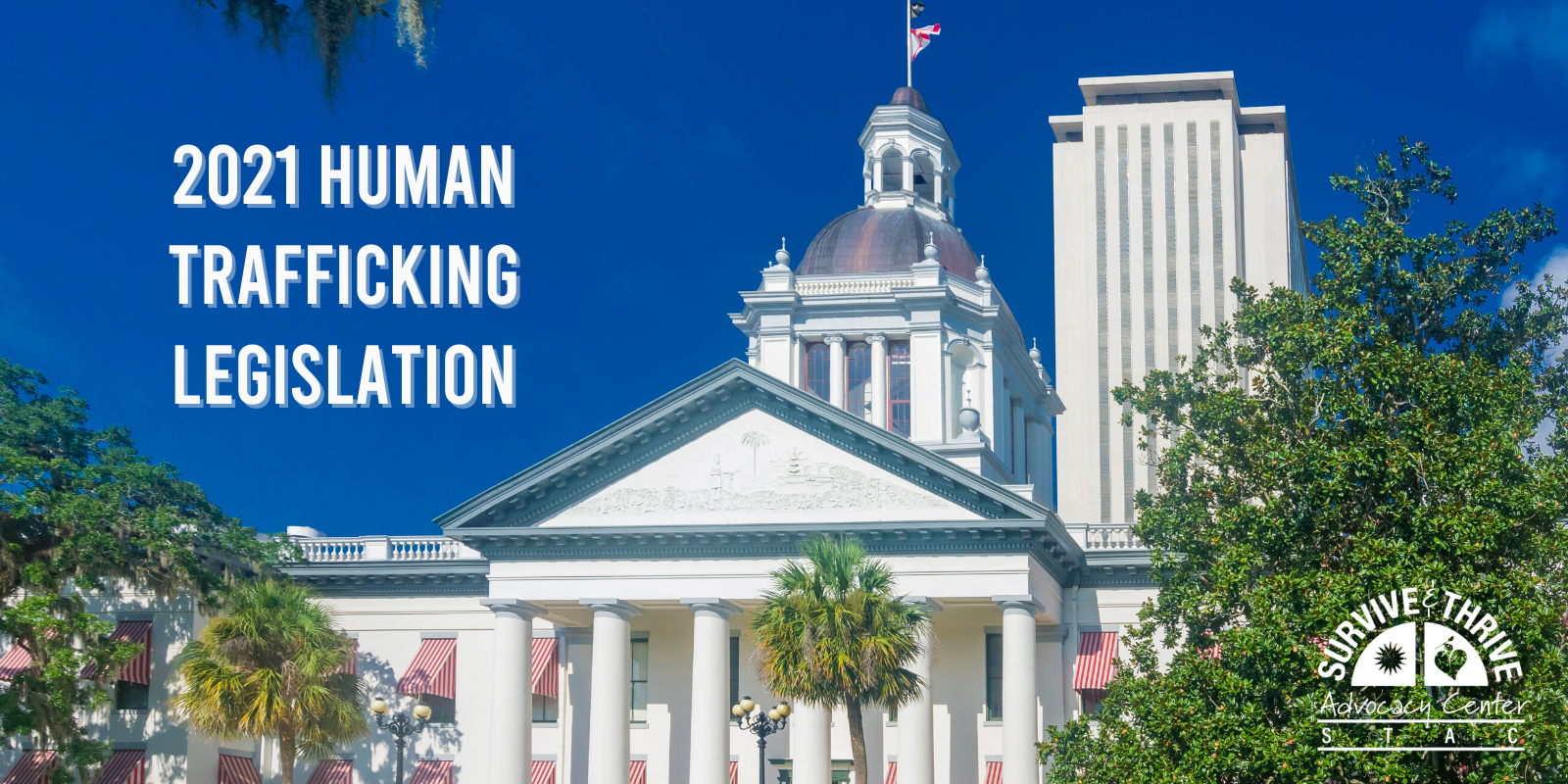The 2021 Florida Legislature passed a bill that reforms Florida human trafficking law by: creating a “human trafficking victim advocate – victim privilege,” broadening of the definition of human trafficking, enhancing conditions of release and supervision for human trafficking offenders, and assisting trafficking victims with criminal record expungement. These are all reforms that should help human trafficking survivors in the justice system to move forward and heal. (This legislation has not been signed by the Governor as of this writing.)
Privacy is extremely important to human trafficking survivors who seek help. For this reason, human trafficking advocates have pushed to have the protections of confidentiality and privilege for their clients just as domestic and sexual violence advocates and victims currently have. So, if this bill becomes law, human trafficking advocates and volunteers who work in a qualified “anti-human trafficking organization,” would be prohibited from disclosing information that a victim shares with them in confidence. Though not absolute, this is a protection that gives victims assurances that they can seek help and not be further shamed, endangered or harmed. This will also help human trafficking advocates work better on the victim’s behalf and provide a tool to fight back against traffickers in the justice system.
This bill also creates a “privilege,” further protecting victim information. This privilege is a legal right that the victim holds so that information they disclose cannot be shared, even if subpoenaed. This means that a victim can refuse to disclose, as well as prevent anyone else from disclosing, their confidential information in the course of being supported by an advocate. Only the victim can “waive” this privilege and grant permission for the advocate to disclose information. Though not absolute, this law goes a long way to protecting victim information in the justice system.
For this law to apply, a “human trafficking victim advocate” must complete 24 hours of training through the Florida Attorney General’s Office and eight hours three years after initial certification.
A second set of reforms in this bill change Florida’s criminal laws to enhance criminal penalties and explicitly broaden the definition of human trafficking to include “purchasing, patronizing, or procuring” another person. The bill does not mandate but “encourages” local state attorneys to adopt “pro-prosecution policy for human trafficking” and make “good faith” efforts to consult a victim when making filing determinations. The bill also heightens conditions of supervision defendants who are convicted of certain human trafficking offenses.
The third major portion of the bill prohibits the clerk of court from charging a trafficking survivor certain fees when they are seeking to expunge a criminal history record of acts they committed while they were being trafficked. This removes a serious financial burden that victims face when seeking this relief. Florida’s expungement laws are important because victims are arrested and prosecuted for crimes that traffickers force or coerce them to commit; and a criminal history can make it difficult or impossible for trafficking survivors to get a job, obtain education, or take other steps forward to heal and become economically secure.
STAC supports reforms like these because they help survivors to have a few more ways to get the “full cup of justice” they so deserve. Nobody chooses to be trafficked and survivors certainly should have full access to the remedies under law as well as advocacy and support from STAC and organizations like ours. These changes help make it possible for survivors to recover from the trauma of trafficking and know that elected leaders have heard their voices.
This law went into effect on July 1, 2021. For more information see: CS/CS/SM 1826 by Diaz https://www.flsenate.gov/Session/Bill/2021/1826/?Tab=BillText Companion: CS/CS/HB by Toledo.
For more information about victim confidentiality and privilege: https://law.lclark.edu/live/files/25187-ncvli-newsletter—protecting-victims




